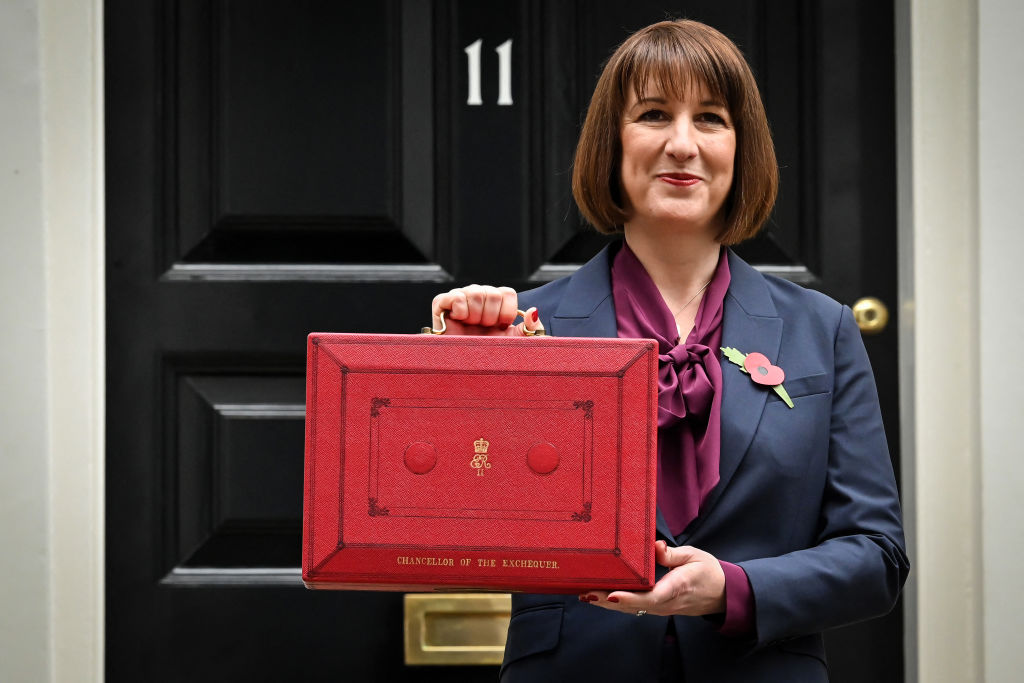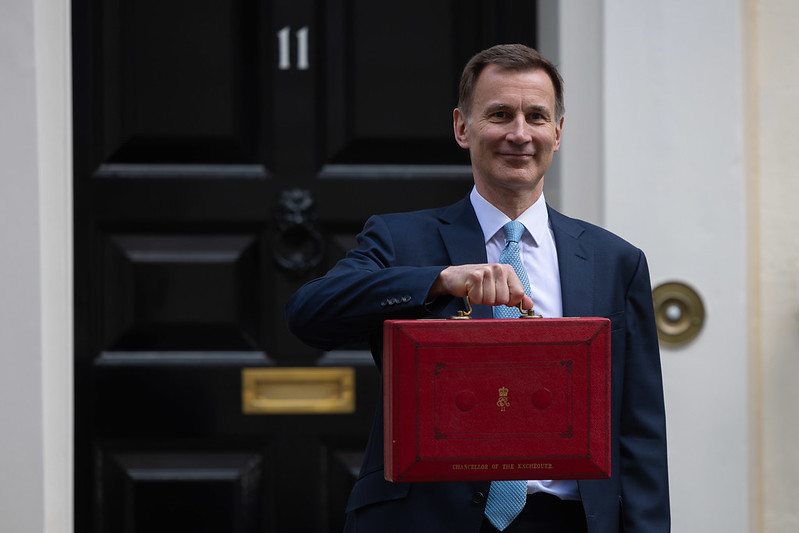Pensions guide: the different types of pensions you need to know about
Our pensions guide explains the different ways you can save for your retirement


Get the latest financial news, insights and expert analysis from our award-winning MoneyWeek team, to help you understand what really matters when it comes to your finances.
You are now subscribed
Your newsletter sign-up was successful
Want to add more newsletters?

Twice daily
MoneyWeek
Get the latest financial news, insights and expert analysis from our award-winning MoneyWeek team, to help you understand what really matters when it comes to your finances.

Four times a week
Look After My Bills
Sign up to our free money-saving newsletter, filled with the latest news and expert advice to help you find the best tips and deals for managing your bills. Start saving today!
It is getting more expensive to retire so a pension can be crucial to help put money aside so you can afford your golden years.
A pension is designed to support you and provide income when you retire so you can maintain the standard of living you had pre-retirement – or even enjoy a better one. That is becoming more of a challenge with stubborn inflation and bills rising, which has put the typical cost of a comfortable retirement at £43,900 per year, according to the Pensions and Lifetime Savings Association.
The figure is already up £800 on 2024 and rises to £60,600 for a couple.
MoneyWeek
Subscribe to MoneyWeek today and get your first six magazine issues absolutely FREE

Sign up to Money Morning
Don't miss the latest investment and personal finances news, market analysis, plus money-saving tips with our free twice-daily newsletter
Don't miss the latest investment and personal finances news, market analysis, plus money-saving tips with our free twice-daily newsletter
Research suggests a pension pot worth around £700,000 would be required to fund this.
The state pension alone won't cover this but a personal or workplace pension provides a tax-efficient way to boost your nest egg and get cash ready for your retirement.
However, you can only access your pension pots at a certain age, which is where it all gets a bit complicated.
In this guide, we explain the different types of pensions and how they work.
State pension support
The government pays a state pension to men and women aged 66 and over.
There are two types of state pension depending on when you were born.
A man born before 6 April 1951 will get the basic state pension, as will a woman born before 6 April 1953.
The full basic state pension is currently worth £176.45 per week.
Anyone who reached state pension age on or after 6 April 2016 receives the new state pension; the full amount is worth £230.25 a week.
You will need 35 qualifying years of National Insurance contributions (NICs) to get the full new state pension, and a minimum of 10 to get anything.
The state pension is treated as income, so you will be taxed if all your earnings are above the personal allowance.
Both types of state pension are increased each year based on a controversial measure known as the triple lock, which commits to increasing the payments by the highest of earnings, the consumer prices index measure of inflation or 2.5%.
You can get a state pension forecast to find out how much new state pension you may get on the gov.uk website.
The state pension is only supposed to support a minimum standard of living in retirement though, so most retirees will also need separate savings.
This is where private pensions come in.
Defined benefit pensions
If you work in the public sector, you will probably have some sort of defined benefit (DB) pension.
This is a set amount you will receive when you retire based on a combination of your final or average salary and your length of service.
Some large private sector companies may also offer DB schemes, also known as gold-plated pensions, but they have become rare as it puts all the investment risk on the employer as they need to ensure they can fund the payouts.
With the government heavily in debt, pension benefits are also being eroded in the public sector too.
So even if you have one of these pensions – and especially if you don’t – you should still be making other provisions for your retirement.
Defined contribution pensions
Since 2012, most private sector workers from age 22 have been automatically enrolled into a pension scheme through their employer.
The aim is to boost pension saving to ensure people have enough funds to support their retirement and aren’t so reliant on the state.
These are known as defined contribution (DC) pensions, with the onus on the employer and employee to put money into the pot, which is then managed by an investment provider and invested in a range of funds.
The government sets minimum contributions under auto-enrolment schemes.
It is currently 8%, and is known as the 8% rule. It is made up of at least 3% from the employer, 4% from the employee and 1% from pension tax relief.
Unlike a DB scheme, what you get in the end with DC schemes depends on how your investments perform between now and when you retire, as well as how much you contribute.
It is possible to opt out of a company auto-enrolment scheme after three months, but this means you won’t be saving for your retirement.
Personal pensions
You don’t only have to rely on your employer for pension savings.
It is possible to set up your own personal pension, which is particularly important for the self-employed who don’t have access to auto-enrolment and won’t benefit from employer contributions.
This can be set up directly with a pension provider, or through a financial adviser.
Another option is a self-invested personal pension (Sipp), available through DIY investment platforms or robo-wealth managers.
You get to choose exactly what to buy, and you can make changes as frequently or infrequently as you like.
It is worth comparing Sipp providers as they each offer access to different investments, and have different fees.
The tax benefits of pensions
Similar to an ISA, the investment growth in a pension is earned tax-free.
There is also another benefit in the form of pension tax relief.
For example, when a basic-rate taxpayer puts £80 into a pension, HMRC grosses it back up to £100, effectively giving you the 20% tax you paid on that £100 when you first earned it.
If you're a 40% or 45%-rate taxpayer, you only have to pay £60 or £65 respectively to make a £100 pension contribution.
Depending on the pension scheme, you either get the 20% basic-rate tax back from the taxman immediately, and then need to claim the rest back through a self-assessment tax return, or you'll get the full amount of tax relief. If you're not sure, check with your pension provider, or if it's a workplace scheme, ask your HR team.
How much can you put into a pension?
You can contribute as little or as much as you like into a pension, but to claim the full amount of tax relief there is an annual pension allowance of £60,000.
If you are a very high earner, and your annual taxable income exceeds £260,000, you don't get the full allowance. Instead, it is reduced by £1 for every £2 of income that you earn over the threshold.
The maximum reduction is £50,000, meaning the highest earners only have a pension allowance of £10,000.
The earlier you start contributing, the larger your pot could be and the more chance you will have of smoothing out volatile times in your pension portfolio.
While the minimum auto-enrolment rate is 8%, the Association of British Insurers has suggested it should be at least 12% to deliver a better standard of living in retirement.
There is no sign from the government that it will increase this threshold, but employees are allowed to contribute more into their pensions than this level. In fact, some employers will pay in extra money if the employee contributes more - so it's worth asking.
There used to be a lifetime allowance that capped the total amount that could be saved into a pension at just above £1m, but this was scrapped in April 2024.
MoneyHelper has an online pension calculator that can help you work out how much you need for your retirement and what your pot could be worth.
When can I access my pension?
The whole point of pension saving is to only access the funds when you retire.
While the state pension age is currently 66, it is possible to access your own private retirement savings earlier.
The normal minimum pension age is currently 55, rising to 57 from April 2028.
There are circumstances where you may be able to get the money earlier, such as if you are ill or have a protected pension age in your policy.
You need to think about tax once you access your pension. The government lets you take 25% of it as tax-free cash.
The rest can then either be left invested – known as income drawdown – with any withdrawals subject to income tax, or you can use some or all of the money to buy a guaranteed retirement income, known as an annuity, which is purchased from an insurance company.
Timing and how much you take is key as you want to ensure the money doesn't run out. Many retirees follow a 4% pension withdrawal rule.
There are benefits to waiting longer to access your pot. The longer you stay invested, the more valuable your pot and income drawdown withdrawals could be.
Additionally, waiting until you are older to buy an annuity could give you a higher rate depending on your life expectancy.
Annuity payments are also taxed as income.
Why you should save into a pension
Once you reach retirement, you may work fewer hours or not at all.
This means less income but you will still have bills to pay, such as utilities and council tax, even before you think about playing more golf or travelling the world.
The Pensions and Lifetime Savings Association (PLSA) estimates that an individual would need income of £43,900 per year, rising to £60,600 for a couple, for a comfortable retirement.
This includes spending over £130 per week on groceries and £80 a week per couple on meals and extra luxuries such as regular beauty treatments, theatre trips and two weeks' holiday in Europe a year.
Analysis by Quilter for MoneyWeek suggests that a single person would need a pension pot worth £738,000 to purchase an annuity that covers a comfortable retirement. A couple would need £929,000.
That is a lot to put away and shows how important it is to have a savings pot dedicated to your retirement so you can still afford to live when your income drops.
The big problem with pensions is that the government can fiddle with them at any time.
The Treasury is often rumoured to be considering cutting higher-rate pension tax relief, although it has so far resisted this.
However, chancellor Rachel Reeves did announce in her Spring Budget that pensions would be included as part of the valuation of a person’s estate for inheritance tax purposes from April 2027.
The state pension age is also set to rise to 67 in 2028, and 68 in 2037 and 2039, so there is always a chance of having to wait longer to get your state payout.
This makes retirement planning challenging. Experts say it is worth considering other products alongside your pension, such as using your annual £20,000 ISA allowance, which can be accessed any time, or even assets such as buy-to-let property.
It is also worth checking the fees you are paying for your pension as these can eat into your returns. And keep an eye on fund performance to ensure the portfolio matches your risk appetite and ultimately keeps you on track for a happy retirement.
Get the latest financial news, insights and expert analysis from our award-winning MoneyWeek team, to help you understand what really matters when it comes to your finances.

Marc Shoffman is an award-winning freelance journalist specialising in business, personal finance and property. His work has appeared in print and online publications ranging from FT Business to The Times, Mail on Sunday and the i newspaper. He also co-presents the In For A Penny financial planning podcast.
-
 Should you buy an active ETF?
Should you buy an active ETF?ETFs are often mischaracterised as passive products, but they can be a convenient way to add active management to your portfolio
-
 Power up your pension before 5 April – easy ways to save before the tax year end
Power up your pension before 5 April – easy ways to save before the tax year endWith the end of the tax year looming, pension savers currently have a window to review and maximise what’s going into their retirement funds – we look at how
-
 The most and least expensive countries to be an expat in 2025
The most and least expensive countries to be an expat in 2025With some Brits fleeing the country to avoid seemingly ever-increasing taxes, we look at the most and least expensive countries to emigrate to.
-
 What has changed with employers’ National Insurance – and how will it impact you?
What has changed with employers’ National Insurance – and how will it impact you?Will you feel the effects of the National Insurance hike, as businesses warn of redundancies, smaller pay rises and higher inflation?
-
 Conservatives pledge to cut National Insurance again – how much could you save?
Conservatives pledge to cut National Insurance again – how much could you save?News A 2p reduction in National Insurance is a key feature of the Tory’s general election manifesto.
-
 Workers set for new national insurance tax cut – how much will you save?
Workers set for new national insurance tax cut – how much will you save?News National insurance tax rates have fallen but frozen allowances may limit the benefits.
-
 Budget 2024: National Insurance cut, a new British ISA, and reform of the child benefit charge - here’s what has been announced
Budget 2024: National Insurance cut, a new British ISA, and reform of the child benefit charge - here’s what has been announcedThe chancellor has announced a host of changes, including cutting National Insurance again, and abolishing some tax reliefs. Here’s how the Budget will affect your finances.
-
 Brace for a year of tax rises
Brace for a year of tax risesThe government is strapped for cash, so prepare for tax rises. But it’s unlikely to be able to squeeze much more out of us.
-
 Topping up state pension to become easier with new online tool
Topping up state pension to become easier with new online toolAnyone looking to buy extra National Insurance contributions and boost their state pension currently has to make multiple phone calls - but a new online tool is on its way.
-
 Gender pensions gap - are women paying a parenthood penalty?
Gender pensions gap - are women paying a parenthood penalty?Trade body warns women face serious obstacles to saving enough for retirement as the gender pensions gap continues. Is raising a family having a detrimental impact on our pension pot?